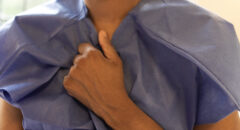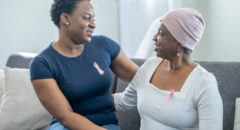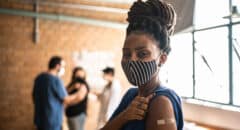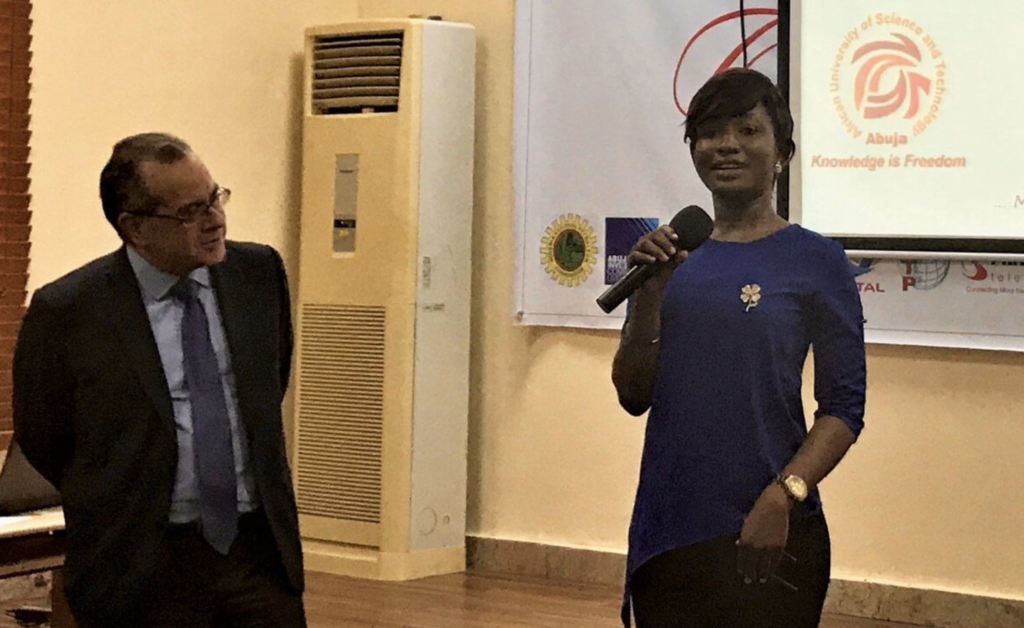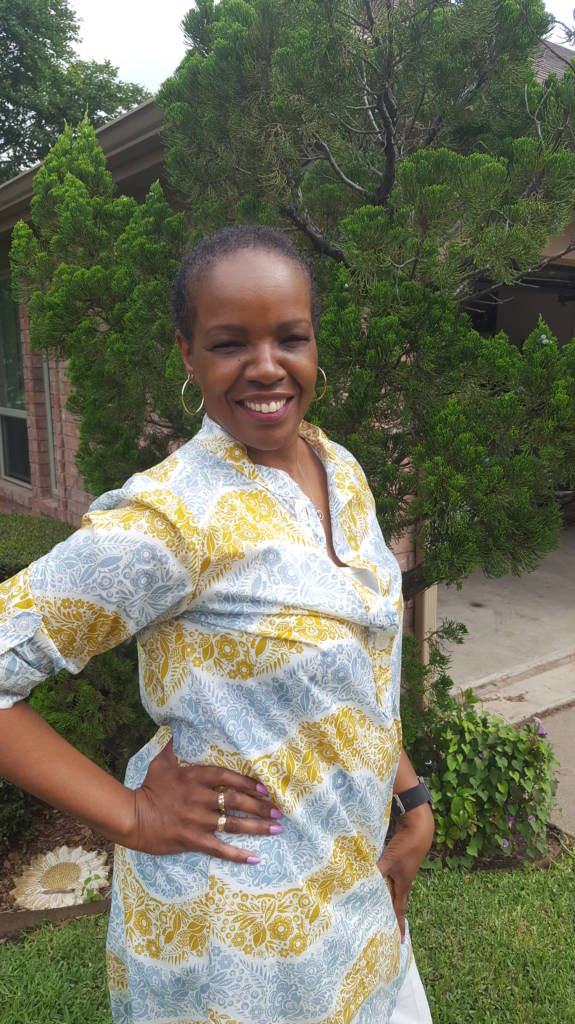 "I am a breast cancer survivor!" Like most survivors, Sylvia Newsome proclaims her survivor status loud and proud. The 50-year-old Mesquite, Texas resident was diagnosed with Stage II triple negative breast cancer in March 2016 after she found a lump while performing a self exam. "Six months prior to this I had my annual mammogram which was normal," Newsome told BlackDoctor.org. Read on to learn about her journey and how she "keeps on keeping on.
"I am a breast cancer survivor!" Like most survivors, Sylvia Newsome proclaims her survivor status loud and proud. The 50-year-old Mesquite, Texas resident was diagnosed with Stage II triple negative breast cancer in March 2016 after she found a lump while performing a self exam. "Six months prior to this I had my annual mammogram which was normal," Newsome told BlackDoctor.org. Read on to learn about her journey and how she "keeps on keeping on.
BlackDoctor.org: Was the possibility of breast cancer something that was on your radar? Was there a history of it in your family?
SN: I have a large family history of different cancers. My family physician referred me for genetic counseling months prior to my diagnosis. Unfortunately, my insurance denied testing because I did not have enough of a family history even though my mother was a survivor and two of my cousins had all battled breast cancers.
BlackDoctor.org: Walk us through life after first receiving the diagnosis.
SN: Absorbing the stage II breast cancer diagnosis was a difficult realization. My husband, Willie, and I cried for nearly two weeks straight. Almost simultaneously, we stopped shedding tears and stated, "Okay, what's next?"
BlackDoctor.org: Describe your treatment process. How did you overcome challenges?
SN: Diagnostic testing was done immediately and frequently to confirm the stage and type of breast cancer and implement a plan of care. After confirming that I had bilateral triple negative breast cancer, genetic testing was performed in which I tested positive for both breast and ovarian bracket genes (BRC1 and BRC2). My doctors then consulted with me and developed a plan of care which included: surgery to have a mediport (central line) implanted and infuse my first dose of chemotherapy the same day, chemotherapy for three months, a bilateral mastectomy with 11 lymph nodes removed and which 3 were positive for metastatic cancer on the pathology report. Then three more months of chemotherapy followed by six weeks of daily radiation. Later came my hysterectomy and this coming summer, I will finish with bilateral breast reconstructive surgery.
I think I am still overcoming challenges. I keep going and try to maintain a positive outcome by celebrating small milestones and speaking positive affirmations daily. I have learned to be at peace about my diagnosis and condition to continue to move forward and make progress. I keep on keeping on!
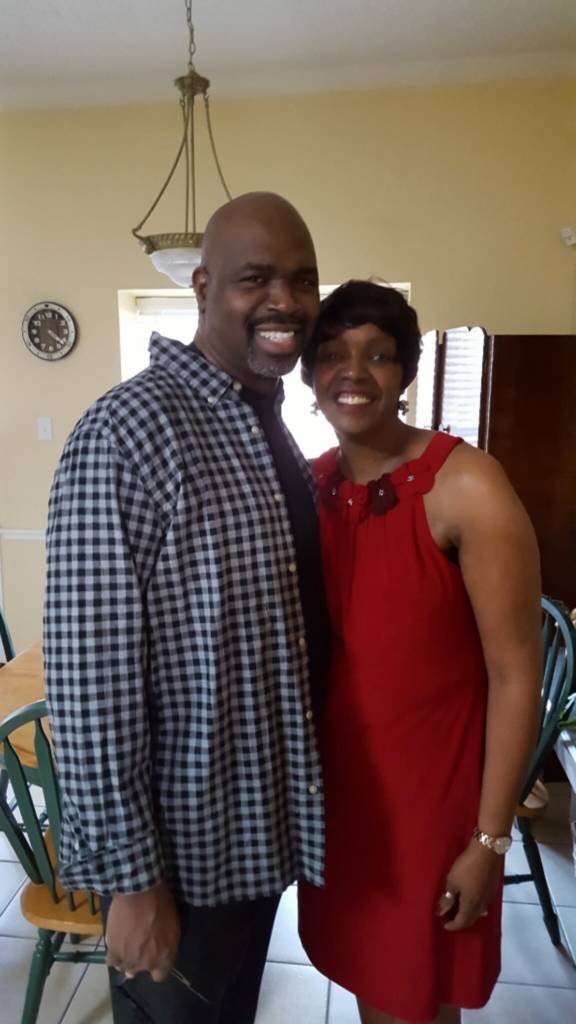 BlackDoctor.org: With physical beauty being such a large part of how we see ourselves, were you concerned about losing your hair or your breasts?
BlackDoctor.org: With physical beauty being such a large part of how we see ourselves, were you concerned about losing your hair or your breasts?
SN: Most definitely, I was concerned and scared about my self-image, sex drive, sex appeal and husband's lack of sex appeal or attraction towards me. All of it! My husband has been here for the long haul. Willie has embraced the new me and us! He has been my rock and support through it all. I accepted the fact that I would lose my hair after a few weeks after chemotherapy. I had Willie shave my head when the hair began to come out. Before receiving the diagnosis of triple negative breast cancer it was already my decision to have both breasts removed secondary to my family history. I am the mother of two grown sons and my breasts were no longer needed. Plus knowing that by keeping my breasts, partial breasts or nipples would increase the percentage return of this disease was not a chance that I was willing to take. Beauty is in the eye of the beholder!
BlackDoctor.org: What are some things that helped you stay encouraged during treatment?
SN: Telling myself and believing that there is an end to the treatment! On days when I did not feel well I would tell myself to power and push through it. Yes, I can, and yes, I will keep standing! Knowing that I had support of my family, friends, co-workers and church family has carried me through a long way.
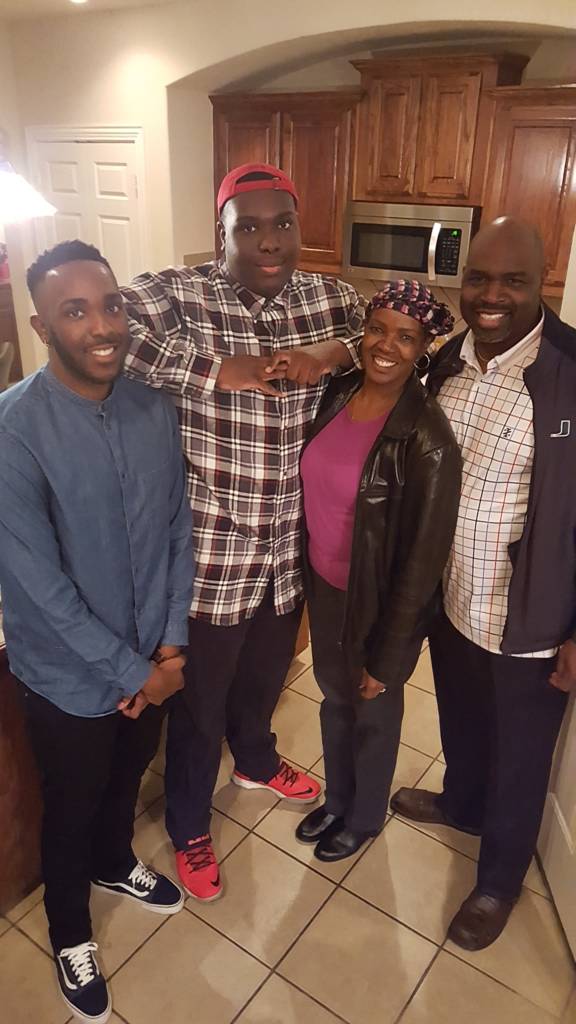
BlackDoctor.org: Are there resources, support networks or programs that were helpful for you?
SN: Since day one, I have had the support of my family, close friends and close co-workers. Before my bilateral mastectomy, my co-workers made a large poster that had the breast cancer ribbon on it and said, "I don't fight alone." This is so true! I have had a tremendous amount of support! I am truly blessed! A couple of years ago, I supported a couple of church members who were active members with Sisters Network Dallas. I participated in the Sisters Network walk to support my church members' team. Little did I know that I would be in need of support for myself later with Sisters Network of Dallas. They have been true sisters, sharing unending support, wealth of knowledge, care, love and personal experiences.
BlackDoctor.org: What does managing your health look like today as a survivor?
SN: Accepting that I have to do small bouts of activities and schedule or attend limited engagements/events in order to prevent fatigue. I now am able to schedule doctor visits and checkups at six month intervals.
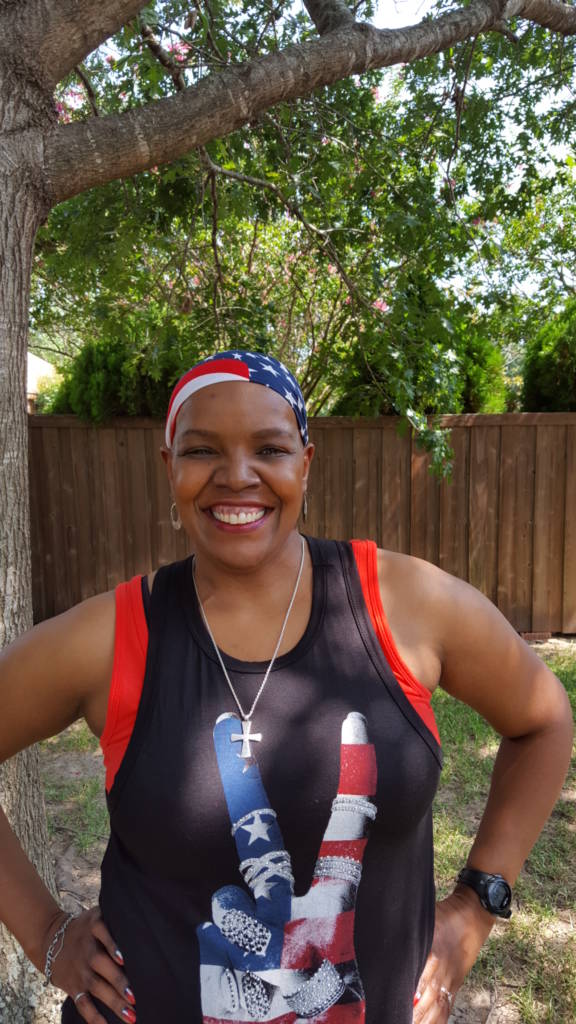 BlackDoctor.org: What has going through this journey taught you about yourself?
BlackDoctor.org: What has going through this journey taught you about yourself?
SN: I am strong, I am determined, I am resilient, I am a fighter, I am inspiring and I am a conqueror of breast cancer! But also it is okay for me to cry, become frustrated and even to have a short pity party releasing it all. I have the power to control and decide what is best for my body!
BlackDoctor.org: What advice would you share for women who are newly diagnosed, or who have a feeling something isn't right but are afraid to bring it up to their doctor?
SN: First, request a 3D mammogram or ultrasound, especially if your doctor tells you that you have dense breast tissue. I believe it should be a standard for women with dense breast tissue. My normal mammogram stated that my breast tissue were dense and it would be hard to detect malignant tissue.
There is nothing too small or minimalistic to discuss or bring to the attention of your doctor. This is so essential for early diagnosis and developing a treatment plan.
Some things to look out for: If you notice that your body is changing or reacting differently bring it up. This could be that you become fatigue or short of breath performing your normal exercise routine. You become tired or lack endurance while baking or cooking. You notice mental changes or altered processing of daily functional tasks. You may think you are going through the change with some experience, but it may be signs of this dreadful illness. It is okay to seek medical attention or advice anytime! I would rather your results from your diagnostic testing or biopsy be benign rather than it is cancer (malignant)! Your body is your temple and you must take charge and control it!



